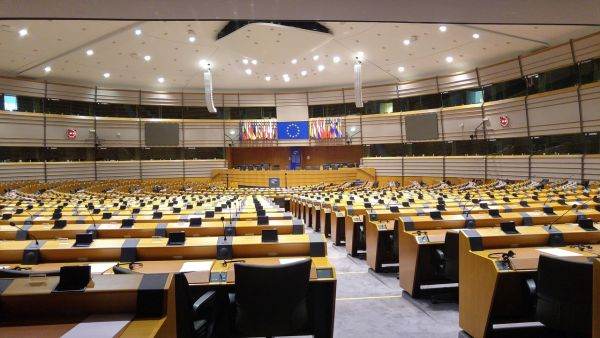Rejection by the Parliament of the budget proposal for the period 2028-2034 is, ultimately, always an option, and the Council and the Commission must be aware of this, warned Siegfried Mureşan, co-rapporteur of the European Parliament for the budget of the European Union, in an interview given to the publication Euractiv, published yesterday.
The statement of Siegfried Mureşan, who is also vice-president of the European People's Party, marks one of the most tense moments of the negotiations on the multiannual financial plan of the European Union, worth two trillion euros. In essence, Mr Mureşan is sending a firm message: if the European Executive does not correct the controversial proposals on the allocation of funds, Parliament will reject the package en bloc.
The European Commission, already on the defensive after a series of contradictory reactions from within its own structure, is "technically prepared to make changes”, according to Siegfried Mureşan, but time is running out. He recalled that the European Parliament had set the deadline for amendments until the debate on 12-13 November, and the lack of clear guarantees risks causing an unprecedented institutional deadlock. "The Commission has understood the substantial requirements and is technically prepared to correct things”, Siegfried Mureşan told the cited source, suggesting that political pressure has already started to take effect behind closed doors.
Parliament's dissatisfaction particularly concerns the Commission's plan to merge subsidies for farmers and regional funds into a centralized national management mechanism. Such a reform would significantly reduce the power of local authorities and MEPs in the decision-making process. Siegfried Mureşan points out that an "overwhelming majority” of the European legislature, made up of the four major pro-European political groups, has united against this proposal. "It is clear that the majority is there, and if corrections are not made, the Commission will be unable to defend its project,” he told Euractiv.
Negotiations with the Commission have been intense in recent weeks, in technical discussions aimed at finding a middle ground between the Executive's vision and Parliament's demands.
According to the cited source, Siegfried Mureşan outlined four possible scenarios: rejecting the proposal, withdrawing it, amending it or providing political guarantees.
"The Commission wants to avoid a rejection, and we understand that it cannot withdraw the document now. But declarations are not enough,” the MEP stressed. In his opinion, the only realistic solution is concrete amendments that would restore control over funds to local actors and ensure transparency in the spending of European money.
In the Council, reactions are divided. Germany and Denmark have publicly defended the Commission's proposals, while other member states are hesitant to take a firm position. The Danish Minister for European Affairs, Marie Bjerre, criticized the Parliament's "intransigent approach", considering that the threat of blocking the budget risks paralyzing the decision-making process. Siegfried Mureşan rejects this criticism, insisting that defending the institutional balance is vital for the Union's credibility: "It is also in the Council's interest that the Commission amends the proposal. It is now up to it to find the procedural solution to do so".
It is not just numbers that are at stake, but also the political direction of the European Union for the next decade. From support for farmers and regional development to investments in the green and digital transition, the structure of the multiannual budget will define the continent's priorities. Through his sharp message, Mureşan conveys that the European Parliament will not accept a plan built "from the top down”, but one that respects the principle of subsidiarity and the democratic involvement of all European actors.
In this context, the final warning of the Romanian MEP resounds like a red line in the negotiations in Brussels: "If the Commission does not propose amendments, Parliament will reject the national plans. The majority will be so large that it will be impossible for the Commission to defend its proposal,” said, according to the cited source, Siegfried Mureşan, a statement that outlines a new political reality in the dialogue between the main institutions of the European Union.
















































